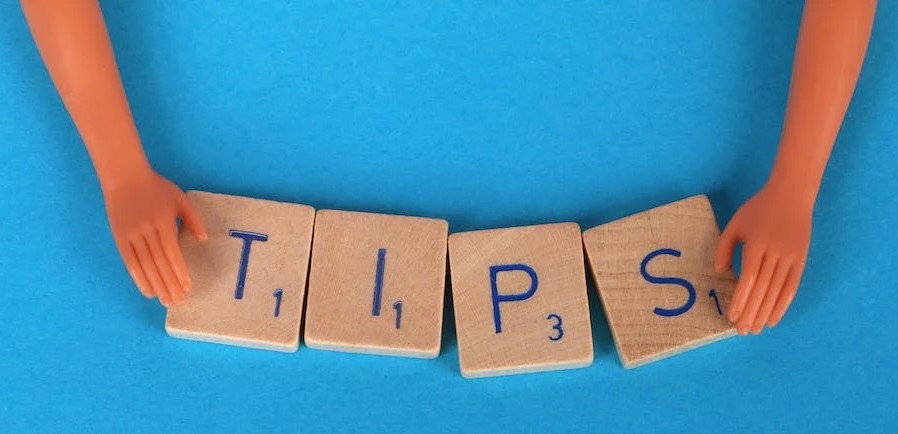Lier Vs Liar : Understanding Nuances and Usages
Contents

What is the difference between "Lier" and "Liar"?
Have you ever been confused about the difference between "lier" and "liar"? Don't worry, you're not alone! Many English learners often find these words challenging to distinguish.
At its core, the difference lies in their meanings. The meanings of "lier" and "liar" can be found from the initial letters of these words. "Lier" is a term used to describe someone who consistently lies down or reclines, while "liar" refers to an individual who tells falsehoods or untruths. Both words may sound similar, but their meanings are distinct.
The word "lier" comes from the Old English word 'leger,' which means to lie down or recline. On the other hand, "liar" originates from the Middle English word 'lyer,' meaning one who tells lies. It's fascinating to see how these words have evolved over time.
Now that we understand the definitions and origins of these words, let's explore some usage guidelines for more clarity.
Mastering the Proper Usage of "Lier" and "Liar"
Understanding the correct usage of words is vital when learning spoken English. Let’s delve into the nuances of usage and meaning of "lier" and "liar."
When to Use "Lier":
The term "lier" is not commonly used in English. However, it refers to someone or something that lies down or reclines.
Use "lier" when describing a person who frequently rests, lounges, or reclines.
When to Use "Liar":
"Liar" is widely used in English and refers to a person who tells falsehoods or deliberately deceives others.
Use "liar" when describing someone who habitually tells lies, whether big or small.
Here are a few examples of "lier" and "lier" in contexts illustrating the correct usage of both words:
Lier:
My cat is a lazy lier; she spends hours napping in the sun.
After an exhausting day at work, I enjoyed being a couch-lier for some time.
She is a habitual lier; she spends most of her day lying on the couch.
Liar:
She accused him of being a liar because he never kept his promises.
The politician was exposed as a liar after evidence of corruption emerged.
He is known as a compulsive liar; you can never trust anything he says.
Remember, context plays a crucial role in determining whether to use "lier" or "liar." Pay attention to the meaning you want to convey and choose accordingly.
"Lier" vs "Liar": Pronunciation Differences
Now let's look into the pronunciation of "lier" and "liar." "Lier" and "liar" are homophones, meaning they sound the same but have different meanings. To pronounce them accurately, here's a handy guide:
1. Lier: Pronounced as /lahy-er/
The first syllable sounds like "lie", as in telling a falsehood.
The second syllable rhymes with "air", like the air we breathe.
2. Liar: Pronounced as /lahy-er/
The pronunciation of "liar" is identical to that of "lier".
In British English, both "lier" and "liar" are pronounced without emphasizing the 'r' sound at the end. The 'r' is simply dropped. For example, "lier" would be pronounced as "lie-uh," and "liar" would be pronounced as "lie-uh."
On the other hand, in American English, both words are pronounced with an emphasized 'r' sound at the end. So, "lier" would be pronounced as "lie-er," and "liar" would be pronounced as "lie-er." The 'r' is distinctly articulated.
In Indian English, there can be variations depending on regional accents and influences from different English-speaking countries. However, most Indians tend to follow British pronunciation patterns.
These videos will provide you with clear demonstrations of how native speakers pronounce these words. By understanding these nuances, you can improve your pronunciation skills!
Some Common Mistakes Made by Learners
When it comes to using "lier" and "liar" correctly, there are a few common mistakes that learners tend to make. Let's take a look at them and understand why they occur:
1. Incorrect Pronunciation: A common mistake occurs with the pronunciation of "lier." Because of its spelling, many learners mistakenly pronounce it as /li-er/ (rhyming with "ear") instead of the correct pronunciation /laɪər/ (rhyming with "fire"). To avoid this mistake, listen to the audio examples provided or look for the pronunciation of these words in the everyday media that you consume. This may include movies, music or social media content.
2. Lack of Contextual Understanding: Understanding context is crucial when it comes to using these words accurately. Remember that "liar" refers specifically to a person who tells lies intentionally, while "lier" is not a commonly used word in English and is often confused with "liar." Here are some usage examples of "lier" and "liar" in the incorrect and correct contexts:
Incorrect: She is a known lier.
Correct: She is a known liar.
By familiarizing yourself with the correct usage and avoiding these common mistakes, you'll be well on your way to mastering the difference between "lier" and "liar."

Tips to Remember the Use of "Lier" and "Liar"
Remembering the difference between the meaning of "lier" and "liar" can sometimes be challenging, but with a few simple tips, you can master their usage effortlessly. Here are some effective techniques to help you remember when to use each word correctly:
1. Mnemonic Technique: Here's a mnemonic device to memorise the difference between "lier" and "liar":
"Lier" is like "L" for "laying down" or "lying horizontally."
"Liar" is like "liar, liar, pants on fire" - a common saying to remember dishonesty.
2. Personalized Memory Aids: Create your own personalized memory aids based on your interests or experiences. For example, if you enjoy sports, associate the word 'lier' with a soccer player lying on the ground pretending to be hurt. This connection will remind you that 'lier' means someone who lies down or reclines.
3. Repetition and Practice: Consistently using both words in sentences will reinforce their correct usage in your mind. Practice constructing sentences like, "He is a notorious liar," or "She always prefers lying down, she's a lier." This repetition will help solidify your understanding of when to use each word appropriately.
4. Online Resources: Take advantage of online tools and resources specifically designed for language learners. Platforms like Clapingo offer interactive exercises, quizzes, and vocabulary-building games that can enhance your understanding of words like "lier" and "liar".
By implementing these tips into your learning routine, you'll develop a strong grasp of the nuances and usages of "lier" and "liar". Remember, practice makes perfect, so don't hesitate to put your knowledge into action by using these words in everyday conversations.
"Lier" vs "Liar" in Indian Languages
In addition to understanding the nuances and usages of "lier" and "liar" in English, it can also be interesting to explore how these words are translated into various Indian languages. Here is a table that provides translations of "lier" and "liar" in some Indian languages:
Language | Translation of Lier | Translation of Liar |
Hindi | जो लेटा हो | झूठा |
Marathi | जो झोपतो | लबाड |
Tamil | படுத்திருப்பவன் | பொய்யர் |
Malayalam | കിടക്കുന്നവൻ | നുണയൻ |
Assamese | শুই থকা এজন | মিছলীয়া |
Bengali | যারা শুয়ে আছে | মিথ্যাবাদী |
It is important to note that while these translations may not capture the exact nuances of "lier" and "liar," they provide a general understanding of how these words are represented in various Indian languages. Understanding the translations can be beneficial for English learners who are bilingual or have exposure to multiple languages.
Closing Remarks
As we come to the end of our exploration of "lier" vs "liar," let's quickly recap the important points we discussed. We delved into the difference between these two words, understanding their meanings and origins. We also explored the nuances in the pronunciation of "lier" and "liar," recognizing that they are homophones.
Mastering the proper usage of "lier" and "liar" is crucial, and we provided guidelines on how to use these words correctly in spoken English. We emphasized the importance of context and provided examples to illustrate their appropriate usage. We also discussed some common mistakes to look out for when using "lier" and "liar."
To help you remember the difference between "lier" and "liar," we introduced a mnemonic device and a memory aid technique using visual imagery. For our Indian language learners, we provided translations of "lier" and "liar" in Indian languages as well, facilitating better understanding across different linguistic backgrounds.
As we conclude this article, we encourage you to continue enhancing your English language skills through platforms like Clapingo that provide personalised spoken English coaching for language learners of all proficiency levels. Their resources on vocabulary improvement and fast learning techniques can support your journey towards fluency and confidence.
Always remember that practice is the key to language learning. Keep practising your English skills by engaging in conversations with native speakers or fellow learners. With dedication and perseverance, you'll see significant progress in no time.
So expand your linguistic horizons and enjoy the journey of mastering the English language!
FAQs
1. How do you use "lier" in a sentence?
The word "lier" is not commonly used in English. When it is, it is used as a noun in sentences. For example, "After a long day of work, she preferred being a bed-lier."
2. Who is called a liar?
A person who tells lies or makes false statements is referred to as a liar. This term is used to describe someone who intentionally deceives others by not telling the truth.
3: Who is a lier?
"Lier" can refer to the act of lying down, as in positioning oneself horizontally. It is not a common word in English and is sometimes used in contexts related to relaxation, rest, or physical positioning.
Comments
Your comment has been submitted